10 Years Ago, Resident Evil 4 Saved a Series from Itself
With this polarizing sequel, director Shinji Mikami brought newfound relevance to the property that made him a star—and paved the way for the future of action games.
This article first appeared on USgamer, a partner publication of VG247. Some content, such as this article, has been migrated to VG247 for posterity after USgamer's closure - but it has not been edited or further vetted by the VG247 team.
By the early 2000s, Resident Evil began to resemble a lingering party guest that just couldn't take a hint.
Of course, the series wasn't without its fans, but the sun had set on the brief wave of survival horror games inspired by the success of its 1996 debut—and Nintendo's GameCube, of all platforms, was shaping up to be the genre's final resting place. 2002's stunning remake of the original stands as perhaps the definitive survival horror experience, yet sales of this Nintendo-exclusive release failed to meet Capcom's expectations. And the embarrassing Resident Evil Zero, released only a handful of months later, signaled a likely and unfortunate end for a series that once stood as one of the most exciting new experiences of the PlayStation era. With its reputation dragged through the mud, only drastic measures could save Resident Evil.
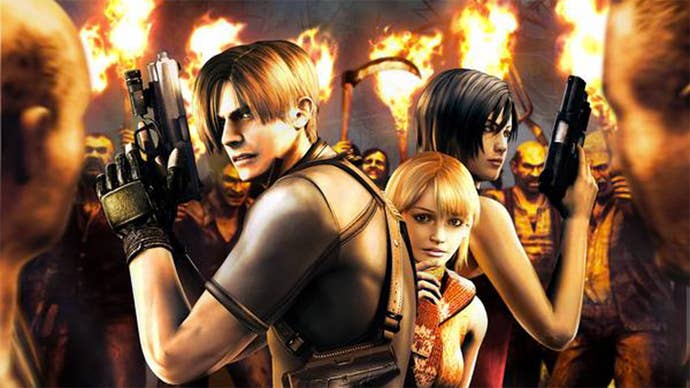
For Resident Evil to survive, it would need to wow players all over again; each successive game had refined things ever so slightly, but, by 2000's Code Veronica, Capcom had done pretty much everything possible with the formula they established. Much this repetition can be blamed on the technical shortcomings of the Sony PlayStation—there's only so many ways to play with polygonal characters skating across pre-rendered backgrounds—but the new generation of hardware held the promise of finally cutting Resident Evil free from its awkward roots. The only problem left, then, was figuring out the right direction to take it.
Few commercially and critically successful games have a development history as troubled as Resident Evil 4's. We can only put the pieces together from the unfinished versions of RE4 shown to the press and public, but it's commonly believed the game's production essentially restarted three (or more) times, with some of the unused parts finding their way into other Capcom games, like Devil May Cry. Before RE4 entered the world as we know it today, it took several forms, from stylish action to supernatural horror, and passed through the hands of current Platinum Games developers Hideki Kamiya and Hiroshi Shibata (who served as lead designer on Okami and Bayonetta). There's no telling how many millions Capcom lost throughout Resident Evil 4's prolonged development, and thanks to the tight-lipped nature of Japanese game developers, we'll likely never know—still, there's a hell of an oral history waiting for the first journalist granted access to this tantalizing information.
Resident Evil eventually found itself back in the hands of its creator, Shinji Mikami, who last held this role for the series' debut. And this time, pressure from higher-ups would serve as his muse: With its flagging sales and sinking reputation, Mikami had one last chance to fix Resident Evil before Capcom tossed it on the scrap heap for good. If circumstances weren't so dire, it's unlikely Mikami and his team would be so willing to completely abandon the tropes and mechanics that made Resident Evil Resident Evil. Though it should be noted that massive, polarizing changes to longstanding franchises seemed to be de rigeur for the GameCube: This was the console, after all, that threw Metroid into the first-person perspective, transformed The Legend of Zelda's Hyrule into an out-and-out interactive cartoon, and built a mainline Mario game around the use of an oversized squirt gun. With his drastic reimagining of Resident Evil, Mikami was clearly in good company.
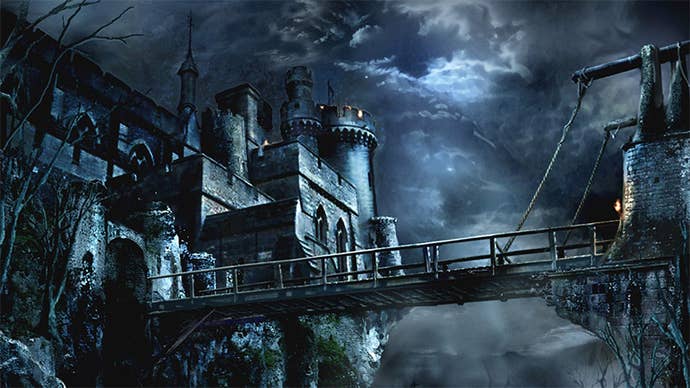
From its outset, Resident Evil 4 practically dances on the grave of survival horror. Protagonist Leon Kennedy—though still saddled with "tank controls"—makes for a far more mobile character to control than the Chris Redfields and Jill Valentines of the past. Instead of forcing players to clumsily steer him through cramped, dark hallways, RE4 tosses Leon into a relatively open landscape begging to be explored. Rather than taking the form of static images, these polygonal environments offer plenty of context-sensitive actions to send Leon flying through windows, scaling ladders, hopping over obstacles, and taking leaps of faith while hordes of enemies nip at his heels. And, early on, RE4 directly comments on the convoluted keys and locks of the previous games by offering a straightforward solution to this ever-present problem: Offending barriers to entry can simply be kicked or shot open, which seems like the most likely strategy for a lunkhead like Leon Kennedy.
Understandably, some hardcore Resident Evil veterans weren't pleased with these changes—though the backlash seems to have died out entirely in the passing years. If you were expecting a proper Resident Evil from part 4, the game could be downright antagonistic: It washes its hands of the overarching Umbrella arc altogether, emphasizes killing enemies instead of avoiding them, and gives its protagonist access to an arsenal of weapons more powerful and varied than any previous Resident Evil. Still, even if the series took a drastic turn, the fundamental tension and careful resource management—two of Resident Evil's most notable features—didn't go anywhere.
If anything, Resident Evil 4 can be called "the thinking person's action game." Not that you necessarily have to be intelligent or refined to play it or anything—who doesn't love an explosion-riddled, brain-dead romp now and then? Shinji Mikami simply adapted Resident Evil's mission statement to an entirely different format, giving new context to his focus on constantly supplying the player with painful and meaningful choices. If you play Resident Evil 4 like a standard action game, you'll likely get your ass handed to you; the game's enemy encounters feel like "combat puzzles" (for lack of a better term), which test your knowledge of the specific situation in which each weapon excels. The early areas offer wide-open spaces for tactical retreats, but later segments really put your skills to the test: A mine cart ride towards the middle of the game, for instance, traps Leon on a tiny moving platform as enemies leap on from the sides, not giving him much space to move or time to react. Of course, all of this action is made more intense by Resident Evil's typical lack of resources; though you'll find a lot more than in previous games, RE4—through AI trickery—tends to keep players juuust on the brink of losing everything.
Above all, Resident Evil 4 stands out as one of the few games with too many ideas that somehow executes all of them well. In what can only be chalked up to its prolonged development period, Resident Evil 4 takes players on a wild tour through what feels like several different—though closely related—games. Throughout, Mikami does an excellent job of constantly switching gears between tense combat and quiet exploration, and throws players into a gauntlet of escalating set pieces to fully disrupt their expectations. Though the final area would introduce the world to the unfortunate "zombies with guns" idea that later went on to plague the following sequels, each chapter nonetheless drops Leon into a completely different setting that tests his abilities in new ways. In just a few short hours, players go from reeling in the zombie version of Moby Dick to reenacting Night of the Living Dead's home invasion (albeit with a better ending) to traipsing through a creepy, gothic castle lorded over by a little person cosplaying as Napoleon.
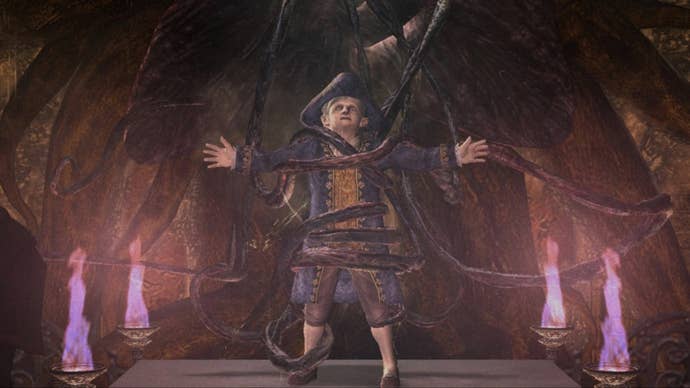
Mikami, unfortunately hasn't been able to top himself since Resident Evil 4, though that's not entirely his fault: Just before the HD era made development much more risky, the Resident Evil creator found himself working under circumstances that made second (and third, and fourth) chances possible. And though Mikami's done some great work in the ten years since RE4's release, the lofty expectations that informed much of The Evil Within's backlash reminded me of a quote the great author Joseph Heller gave late in his life: When told by an interviewer that he had yet to produce anything better than the legendary Catch-22, he wryly replied, "Who has?" If Shinji Mikami never manages to top himself, so be it: with Resident Evil 4, he brought into existence of the most memorable, surprising and well-crafted games of all time.


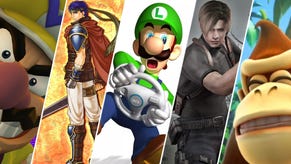


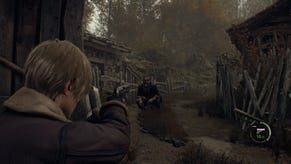

.png?width=291&height=164&fit=crop&quality=80&format=jpg&auto=webp)
.png?width=291&height=164&fit=crop&quality=80&format=jpg&auto=webp)